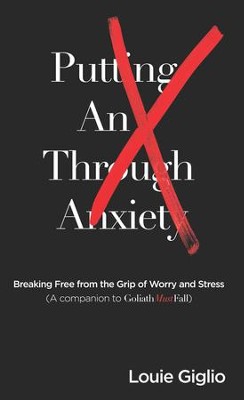The Cost of Choosing Not to Forgive
Description
Sure, you have the option not to forgive others when they've hurt you. But who will that choice really hurt?
In a radio broadcast about forgiveness, Nancy Leigh DeMoss made this statement: "People who are not forbearing, who are not forgiving, generally become hard and cold. They often become depressed and even physically sick. There are many physical ailments today that doctors will tell you are affected by our unwillingness to forgive."
Is she right? If we choose to ignore God's command to forgive others freely, are we the ones most likely to be hurt? Will we inevitably become hard and cold? Can unforgiveness impact our health?
For the answers, I decided to consult my personal physician, WebMd. Here's what I found:
Forgiveness, however, may bring enormous benefits to the person who gives that gift, according to recent research. If you can bring yourself to forgive and forget, you are likely to enjoy lower blood pressure, a stronger immune system, and a drop in the stress hormones circulating in your blood, studies suggest. Back pain, stomach problems, and headaches may disappear. And you'll reduce the anger, bitterness, resentment, depression, and other negative emotions that accompany the failure to forgive.
Crazy, huh? Sounds like some pretty clear evidence that God knew what He was talking about when He urged us to freely forgive.
But just to be sure, I decided to get a second opinion. I consulted the trusted doctors at About.com (hooray for Google!)
Here's their diagnosis.
Forgiveness is good for your heart-literally. One study from the Journal of Behavioral Medicine found forgiveness to be associated with lower heart rate and blood pressure as well as stress relief. This can bring long-term health benefits for your heart and overall health.
A later study found forgiveness to be positively associated with five measures of health: physical symptoms, medications used, sleep quality, fatigue, and somatic complaints. It seems that the reduction in negative affect (depressive symptoms), strengthened spirituality, conflict management, and stress relief one finds through forgiveness all have a significant impact on overall health.
A third study, published in the Personality and Social Psychology Bulletin, found that forgiveness not only restores positive thoughts, feelings, and behaviors toward the offending party (in other words, forgiveness restores the relationship to its previous positive state), but the benefits of forgiveness spill over to positive behaviors toward others outside of the relationship. Forgiveness is associated with more volunteerism, donating to charity, and other altruistic behaviors. (And the converse is true of non-forgiveness.)
If you're not convinced that God knew what He was talking about when He instructed us to forgive, do your own Google search. You will find that the consequences of forgiveness (and unforgiveness) are well documented by Christians and non-Christians alike. Psychologists and medical professionals agree that when we choose not to forgive and to harbor bitterness and anger for an offense, the person we are hurting most is ourselves.
Is there medical evidence of unforgiveness in your life? Are you stressed and depressed? Is your blood pressure high or your energy low? Can these symptoms be traced back to a bitter root growing in your heart?
If so, here's my prescription: Realize that God's call to forgive is rooted in what's best for you, forgive those who have hurt you and trust God with the results.
 Overcome challenges with guided prayer, journal prompts, and God’s wisdom using iDisciple Growth Plans.
Overcome challenges with guided prayer, journal prompts, and God’s wisdom using iDisciple Growth Plans.

-12.png)








